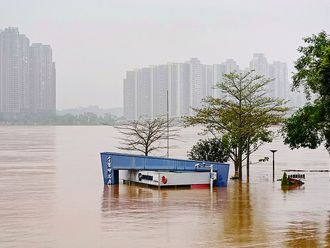Hong Kong: The president of the legislature in Chinese-ruled Hong Kong delayed the swearing-in of two pro-independence lawmakers on Tuesday, an unprecedented move that follows weeks of intensifying pressure from factions loyal to Beijing.
The promotion of independence has long been taboo in the former British colony, now governed under the “one country, two systems” principle since its return to Communist Party-ruled China in 1997.
But the topic has been gaining momentum since pro-democracy protests in late 2014 failed to gain any concession from Communist Party rulers in Beijing.
The Hong Kong government last week failed to halt the swearing-in of the two newly elected lawmakers, 25-year-old Yau Wai-ching and 30-year-old Baggio Leung.
The High Court is due to hold a judicial review of the case on November 3.
Speaking to reporters on Tuesday, a day before the pair were due to retake their oaths, president of the Legislative Council Andrew Leung said he had made the “difficult” and “painful” decision to prevent the legislature being “ground to a halt”.
“I do not kneel down because of pressure. But this is an unprecedented situation,” Leung said.
The pair would not be allowed to be sworn in until the judicial review had been completed, he added.
He had given them the green light for another chance to take the oath last Wednesday, but pro-China lawmakers staged a walk-out from the legislature, denying the meeting a quorum.
They then wrote an open letter saying they would “use all their strength and try all means” to deny the pair the chance to take their oath.
The two had displayed a “Hong Kong is not China” banner and mispronounced China as a derogatory term during their failed attempt to take an oath this month, an action that sparked “great indignation and strong condemnation” from Beijing’s representative office in Hong Kong.
Chief Executive Leung Chun-ying had warned earlier on Tuesday the city’s relationship with Beijing could be hurt if the issue was not properly handled.
“If this is not handled well, I’m afraid there will be significant and long-lasting effects, because this will affect how the central government sees Hong Kong, and it will affect the relationship between Hong Kong and mainland Chinese citizens,” Leung said.












